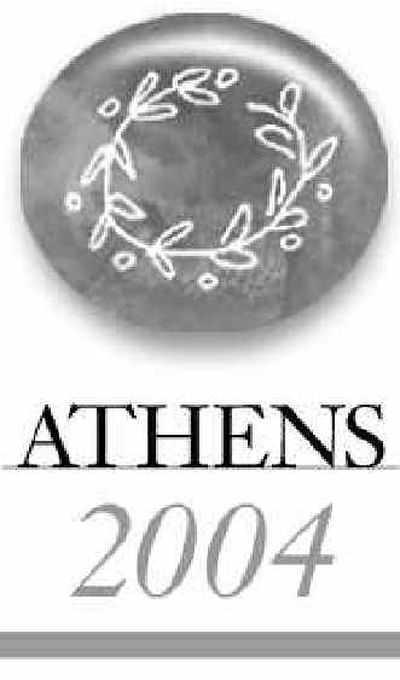Mascots keep with tradition of drawing criticism

They’re getting more bad press than the Olsen twins, and worse reviews than the latest Spike Lee flick. Olympic mascots Phevos and Athena, siblings named for a pair of Greek deities, are catching an ungodly amount of abuse around Athens.
The pair were derided in various news articles, described as animated condoms and mutants from a nuclear meltdown. Their names were co-opted by anti-Olympic activists, who promptly firebombed two government vehicles in February.
Oh, my gods, where did things go wrong?
It’s hard to say. The mascots were not the vision of a single artist, like the Spanish stoner who conjured Barcelona mascot Cobi — squiggled in about four seconds — while in a state of drug-induced bliss.
Nearly 200 entries were submitted when Athens organizers put out the call for prospective mascots. The winning creatures were created by a team of six. They were billed as two kids, brother and sister, “full of vitality and creativity, perhaps mischievous and hence lovable.”
Their bloodlines were impeccable, too.
Phevos was named for Apollo, the Greek god of light and music. Athena, the host city’s namesake, was the goddess of wisdom. Yet the result was less then heavenly.
How to describe the pair?
Their bodies are built like an inverted funnel: Narrow at the neck, extra-wide at the bottom, more Oliver Hardy than Mount Olympus.
Their feet are supersized Shaq-enormous, yet only hold four tiny toes. Their outfits — his blue, hers orange — resemble off-the-rack discount caftans. Or robes from a very weird order of monks.
Their hands, like their feet, feature four digits — although the fingers never see the sun, since the mascots’ outfits inexplicably stretch right to their fingertips. Creative director Spyros Gogos, who declined interview requests, has said their shape was inspired by a bell-shaped Greek doll from the seventh century B.C.
The locals have accepted Phevos and Athena, whose visage graces everything from key rings to kid’s clothes. Although there’s no sign of the pair in the main Olympic stadium, pictures of the siblings greet arrivals at the media village with a cheery message: “Welcome Home.”
And in the pantheon of Olympic mascots, the Greek duo remains head and shoulders — if they actually had shoulders — above the most-reviled Olympic mascot ever, Izzy of the 1996 Summer Games in Atlanta.
Organizers of the opening ceremony kept the computer-generated Izzy on the sidelines, as did the producers of the closing ceremony. Izzy was short for Whatizit, and there were plenty of answers for that.
A Greek tragedy
As relatives tell it, it was the stuff of Greek tragedy: A love-struck young man threw himself off his balcony Monday, two days after a quarrel prompted his girlfriend — a member of Greece’s Olympic judo team — to jump from the same spot.
“He had very intense feelings about the girl. He was very much in love,” said Nikos Drakopoulos, a printer who lives across the hall from the couple. “He could not see himself living if she was gone.”
Giorgos Chrisostomides, 24, was on life-support at an Athens hospital with injuries to his head and back. His high-school sweetheart, 20-year-old judo champion Eleni Ioannou, was at another hospital in critical condition with multiple fractures to her head and body.
The couple had been inseparable ever since Ioannou moved into the apartment Chrisostomides shares with his grandparents just over a year ago.
Chrisostomides was raised by his grandparents after his father died and his mother remarried. He lost his job as an auto mechanic and hadn’t been able to find another one, relatives said.
Neighbors said the couple spent a lot of time in their apartment in the working-class Nea Ionia suburb of Athens, listening to loud rock music. When they went out, they went out together.
Ioannou, a student at the Athens Gymnastics Academy, had become somewhat of a local celebrity since she qualified for Greece’s Olympic judo team in the 172-pound-plus competition. She had been scheduled to move into the Olympic Village on Wednesday.
“Everyone was proud of her. She helped kids in the neighborhood to have dreams,” Drakopoulos said.
Two baseball players test positive
Two players on the Greek Olympic baseball team tested positive for banned substances and were thrown off the team.
Andrew James Brack and Derek Nicholson, both U.S.-born Greek citizens, tested positive in samples taken Aug. 5, the Greek Olympic Committee said Monday.
“That we are talking about doping is very sad,” said Yiannis Papadoyiannakis, head of the Greek team.
Brack tested positive for the steroid stanozolol, while Nicholson, an alternate on the team, tested positive for diuretics, officials said.
Nicholson was a center fielder last season for the Toledo Mud Hens, the Detroit Tigers’ Triple-A team. Brack used to play in the independent Northeast League.